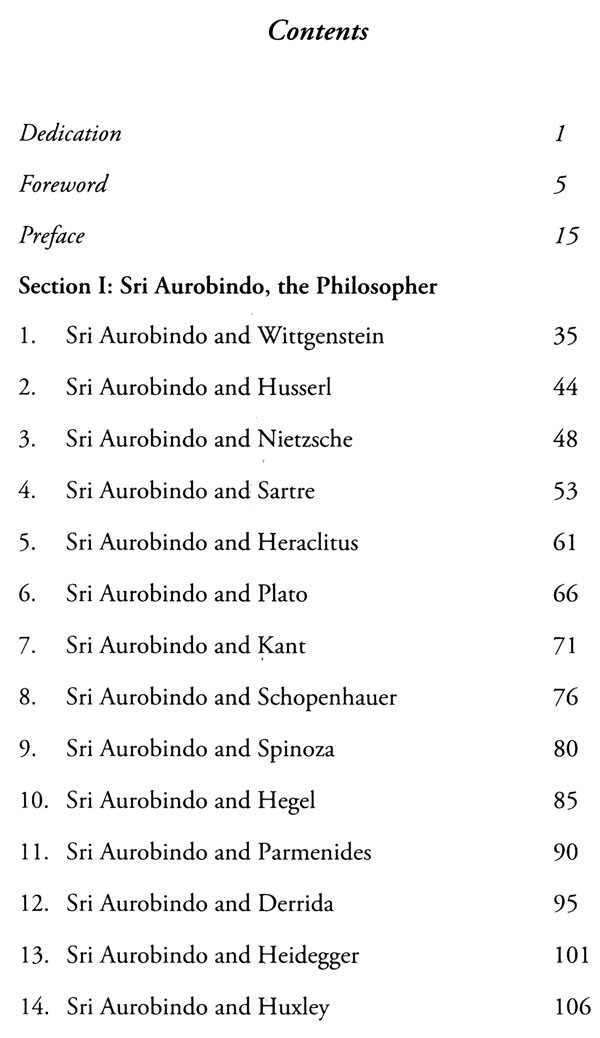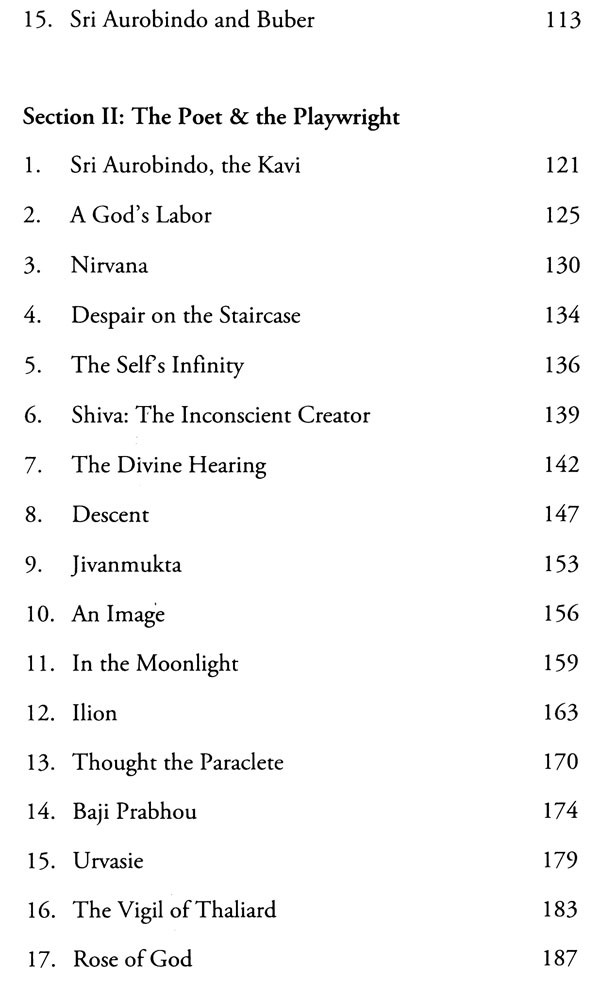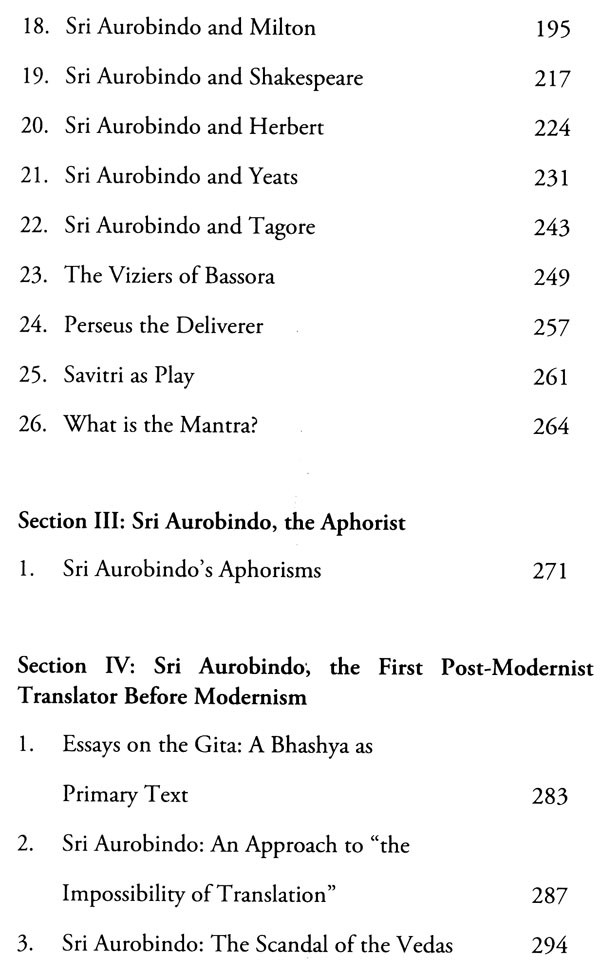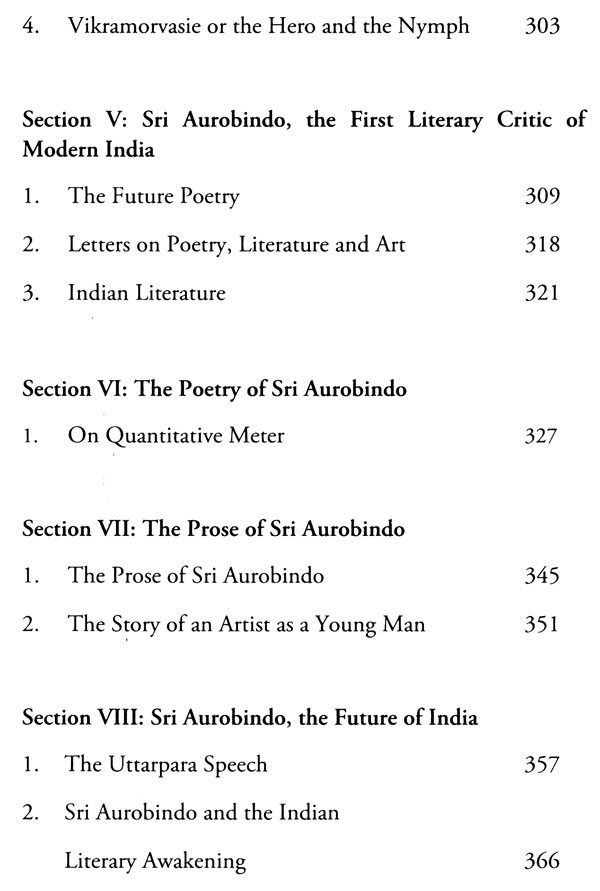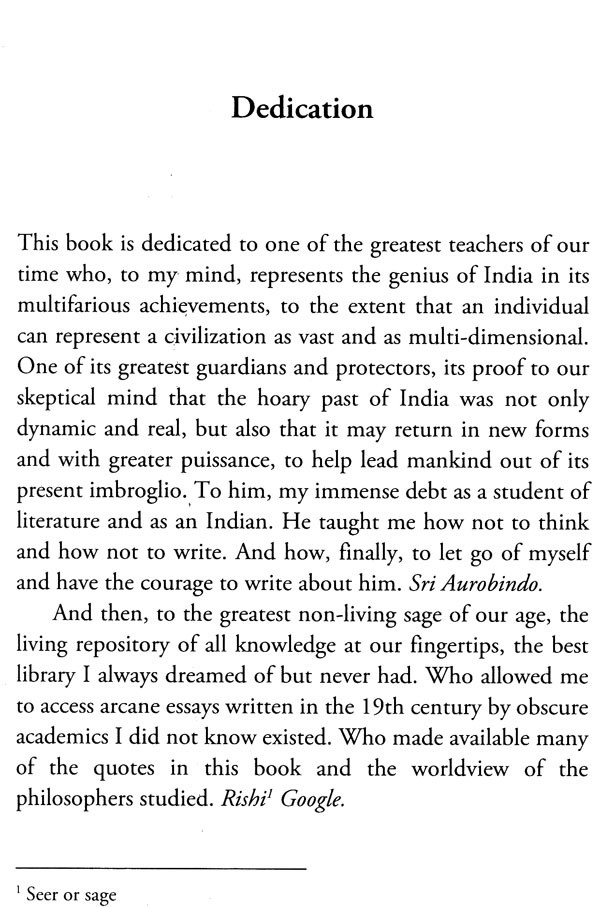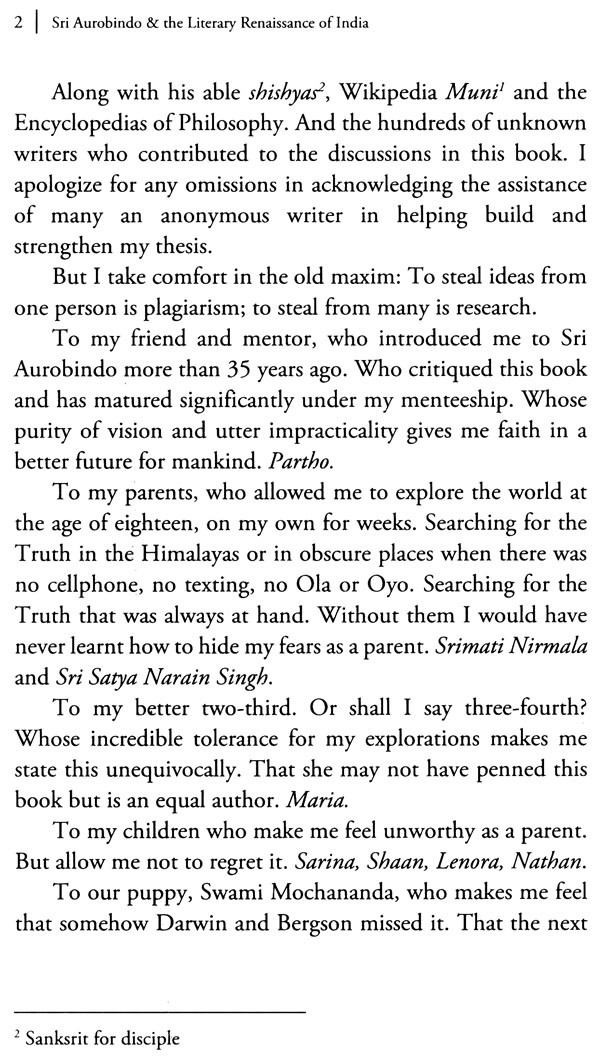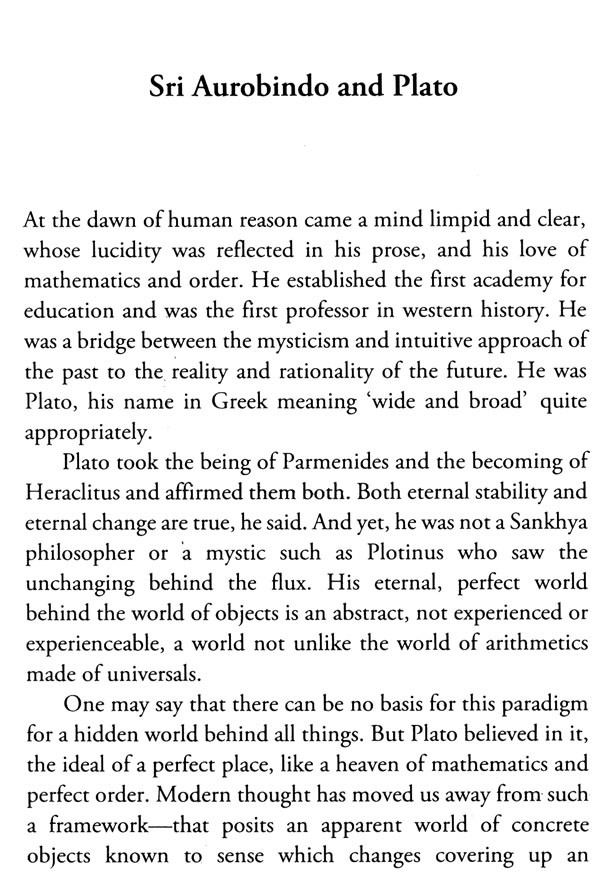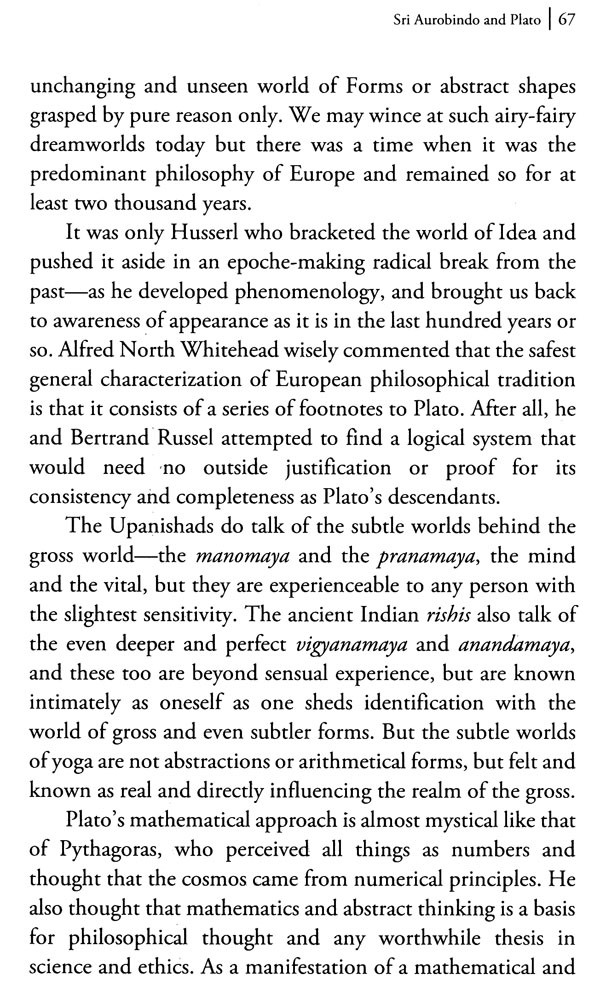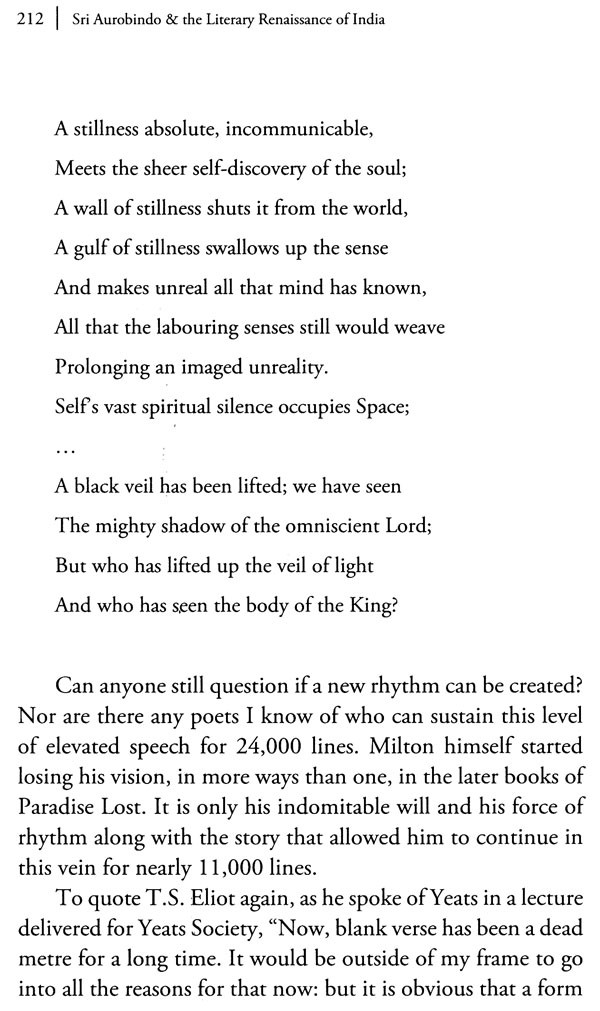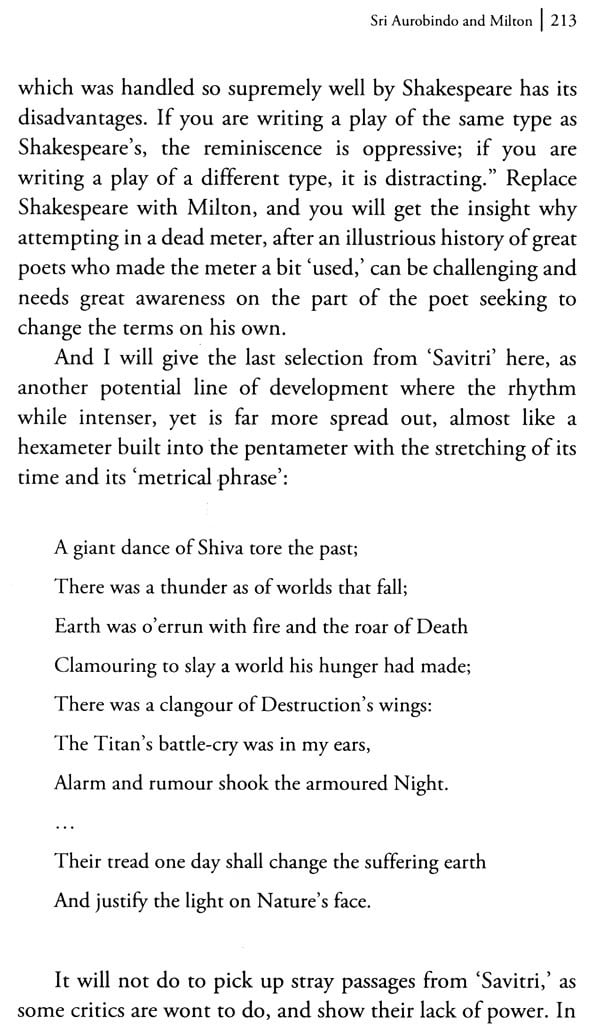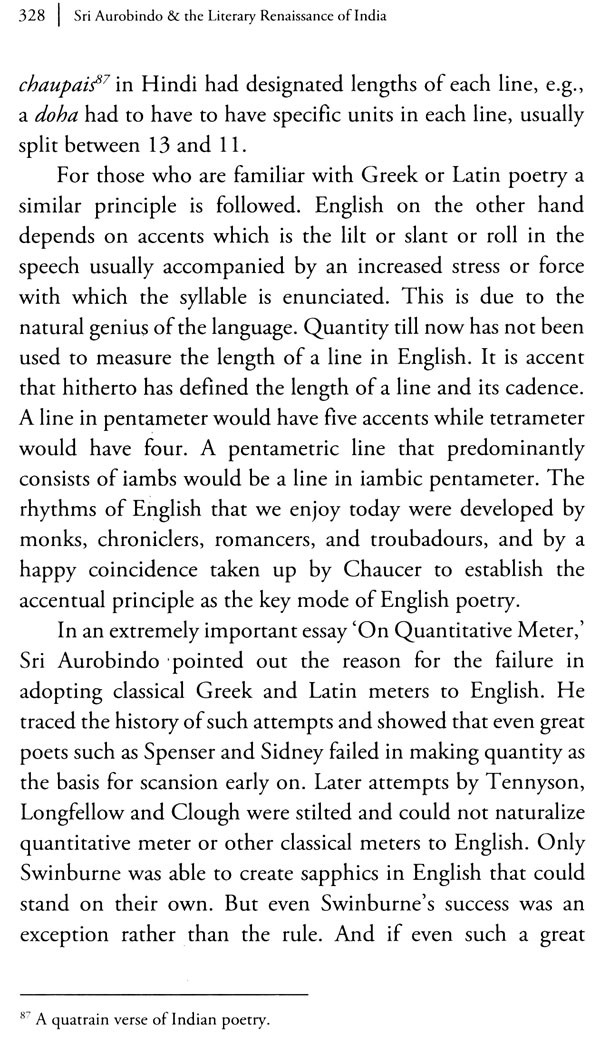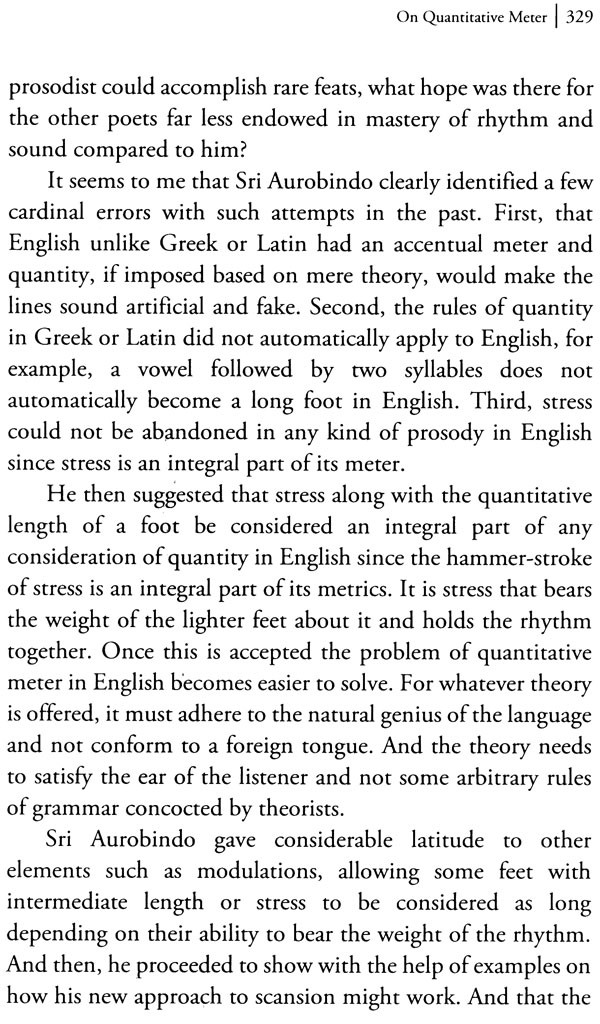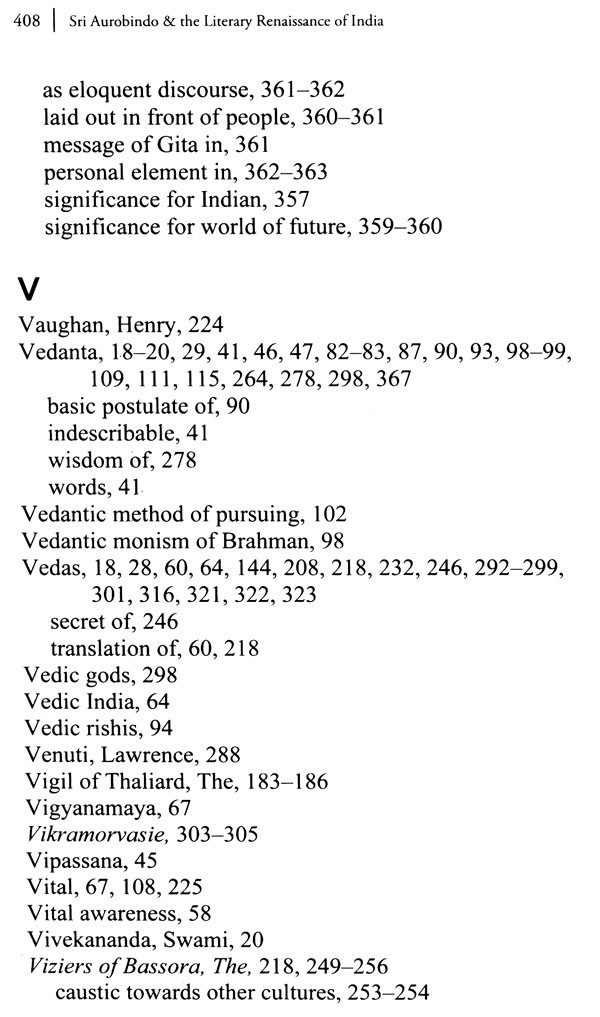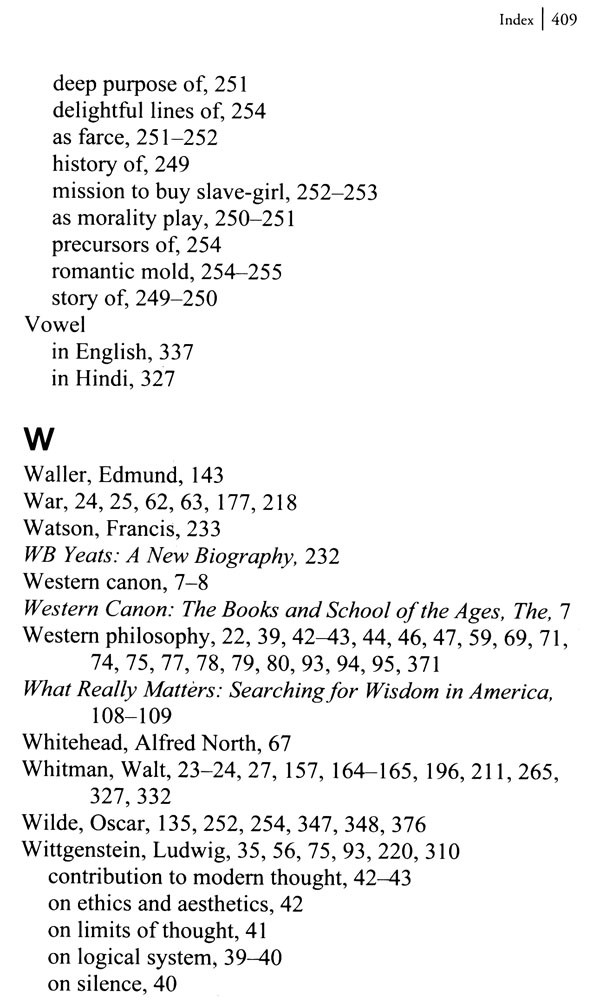
Sri Aurobindo & The Literary Renaissance Of India
Book Specification
| Item Code: | NBZ952 |
| Author: | Pariksith Singh |
| Publisher: | BLUONE INDIA LLP |
| Language: | English |
| Edition: | 2021 |
| ISBN: | 9788194954781 |
| Pages: | 418 |
| Cover: | HARDCOVER |
| Other Details | 9.00 X 6.00 inches |
| Weight | 530 gm |
Book Description
Pariksith's creativity spans from literature, philosophy and science to politics, business and entrepreneurship.
He writes widely and deeply on all matters that he feels are relevant to contemporary human divinization. His concern, through all this, remains only one - the articulation of the deeper and the wider.
It is extraordinary because it proposes a new, exciting, and wide-ranging, if not comprehensive, engagement with the vast oeuvre of Sri Aurobindo (1872-1950). In doing so, it broadens the scope of our understanding and appreciation of the latter's genius in a manner that few books have in the past or are likely to in the future.
It is unusual in the manner in which it seeks to do so, through short, intensely personal, at times eccentric, reflections, rather than scholarly expositions and well- researched explanations. In short and energetic bursts, the author draws our attention to key aspects of Sri Aurobindo's literary masterworks as well as to the crucial ideas that inform his lifework.
Besides offering his own intensely personal readings of well-loved texts such as "A God's Labor," "Nirvana," "Despair on the Staircase," "Descent," "Jivanmukta," and 6 I Sri Aurobindo & the Literary Renaissance of India "Thought the Parakeet," the author, Dr Pariksith Singh, also gives us his uniquely unconventional analyses of not so well- known works such as "The Self's Infinity," "Shiva," "The In coincident Creator," "The Divine Hearing," "An Image", "In the Moonlight," "Baji Prabhou," and "Ilion." The last, particularly, is a text few Aurobindo scholars and aficionados have attended to properly. This may also be said of Sri Aurobindo's verse plays that the author deals with at some length.
But before he goes to the literary works, Dr Singh spends a lot of time on the foundations of Sri Aurobindo's thought. He does so by bringing Sri Aurobindo into a trans-historic and trans-civilization, albeit non-chronological, dialogue with some of the leading philosophers of the Western world. These include Wittgenstein, Husserl, Nietzsche, Sartre, Heraclitus, Plato, Kant, Schopenhauer, Spinoza, Hegel, Parmenides, Derrida, Heidegger, Huxley, and Buber.
I cannot think of any comparable attempt after Sisir Kumar Maitra's Meeting of East and West in Sri Aurobindo's Philosophy (1956) published some 65 years back. Started as far back as 1942 in a series of articles in Advent, Maitra's list of Sri Aurobindo's interlocutors is impressive. It includes Bergson, Plotinus, Nicolai Hartmann, Hegel, Plato, Goethe, and Whitehead.
This stretch of the Himalayan literary landscape of India comprises of the majestic revelations of the kavis and rishis: of our Vedic times, and those of the Upanishads, the Ramayana, the Mahabharata and Puranas. In addition to this national corpus, let us not forget the regional literatures of its thousand dialects and national languages, and those of the saints of the bhakti-marga", the Bauls" from the East and bards of the South. The resonances and harmonies of the land as of an interminable orchestra rising from the genius of its 16 I Sri Aurobindo & the Literary Renaissance of India innumerable people created the macrocosm we call Bharatavarsha.
Putting together a canon of Indic literature might someday be a worthwhile encyclopedic task for a motivated and dedicated team of researchers, scholars, translators, curators and litterateurs. For the literature of a nation is its subtle body that tells us of its deeper movements, its wide- ranging ideas, and eventually, tells us of its soul. It is critical to acknowledge, honor and study its greatest exponents and ensure that the populace does not forget them due to lethargy or superficial distractions. For if we forget our best writers and poets, we have consigned our future to mediocrity and a slow deterioration into barbarism and crudeness.
It is my realization that Indians have done poorly in ensuring that our national treasures, the most creative minds and spirits of our: land, are widely circulated and studied with utmost focus and attention. One among our greatest poets, philosophers, essayists, literary critics, playwrights and visionary global leaders was Sri Aurobindo, who not only defined modern India but is also defining our modern world every day with his far-reaching and prophetic insights.
Book's Contents and Sample Pages
